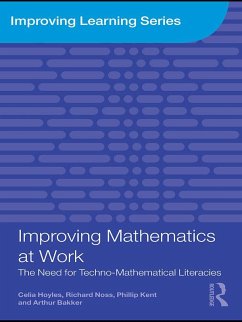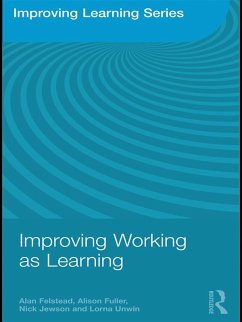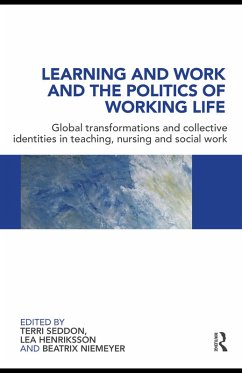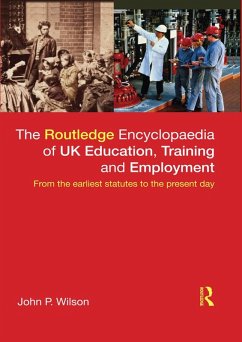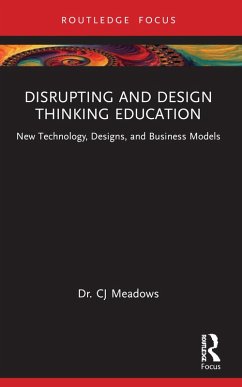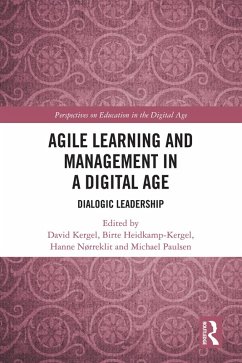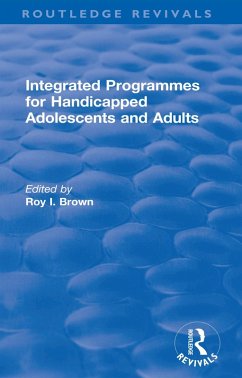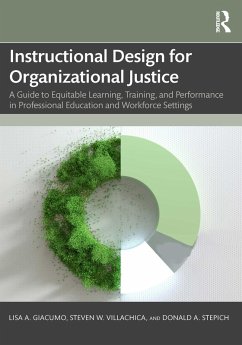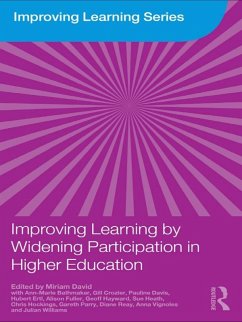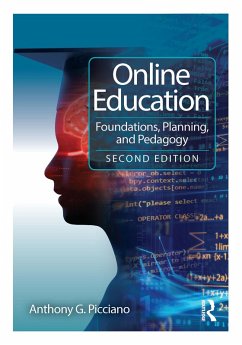
Improving Mathematics at Work (eBook, ePUB)
The Need for Techno-Mathematical Literacies
Versandkostenfrei!
Sofort per Download lieferbar
43,95 €
inkl. MwSt.
Weitere Ausgaben:

PAYBACK Punkte
22 °P sammeln!
Improving Mathematics at Work questions the mathematical knowledge and skills that matter in the twenty-first century world of work, and studies how the use of mathematics in the workplace is evolving in the rapidly-changing context of new technologies and globalisation. Through a series of case studies from the manufacturing and financial service sectors, the authors argue that there has been a radical shift in the type mathematical skills required for work - a shift not yet fully recognised by the formal education system, or by employers and managers.Examining how information technology has ...
Improving Mathematics at Work questions the mathematical knowledge and skills that matter in the twenty-first century world of work, and studies how the use of mathematics in the workplace is evolving in the rapidly-changing context of new technologies and globalisation. Through a series of case studies from the manufacturing and financial service sectors, the authors argue that there has been a radical shift in the type mathematical skills required for work - a shift not yet fully recognised by the formal education system, or by employers and managers.
Examining how information technology has changed mathematical requirements, the idea of Techno-mathematical Literacies (TmL) is introduced to describe the emerging need to be fluent in the language of mathematical inputs and outputs to technologies and to interpret and communicate with these, rather than merely to be procedurally competent with calculations. The authors argue for careful analyses of workplace activities, looking beyond the conventional thinking about numeracy, which still dominates policy arguments about workplace mathematics. Throughout their study, the authors answer the following fundamental questions:
Examining how information technology has changed mathematical requirements, the idea of Techno-mathematical Literacies (TmL) is introduced to describe the emerging need to be fluent in the language of mathematical inputs and outputs to technologies and to interpret and communicate with these, rather than merely to be procedurally competent with calculations. The authors argue for careful analyses of workplace activities, looking beyond the conventional thinking about numeracy, which still dominates policy arguments about workplace mathematics. Throughout their study, the authors answer the following fundamental questions:
- What mathematical knowledge and skills matter for the world of work today?
- How does information technology change the necessary knowledge and the ways in which it is encountered?
- How can we develop these essential new skills in the workforce?
With evidence of successful opportunities to learn with TmL that were co-designed and evaluated with employers and employees, this book provides suggestions for the development of TmL through the use of authentic learning activities, and interactive software design. Essential reading for trainers and managers in industry, teachers, researchers and lecturers of mathematics education, and stakeholders implementing evidence-based policy, this book maps the fundamental changes taking place in workplace mathematics.
Dieser Download kann aus rechtlichen Gründen nur mit Rechnungsadresse in A, B, BG, CY, CZ, D, DK, EW, E, FIN, F, GR, HR, H, IRL, I, LT, L, LR, M, NL, PL, P, R, S, SLO, SK ausgeliefert werden.




